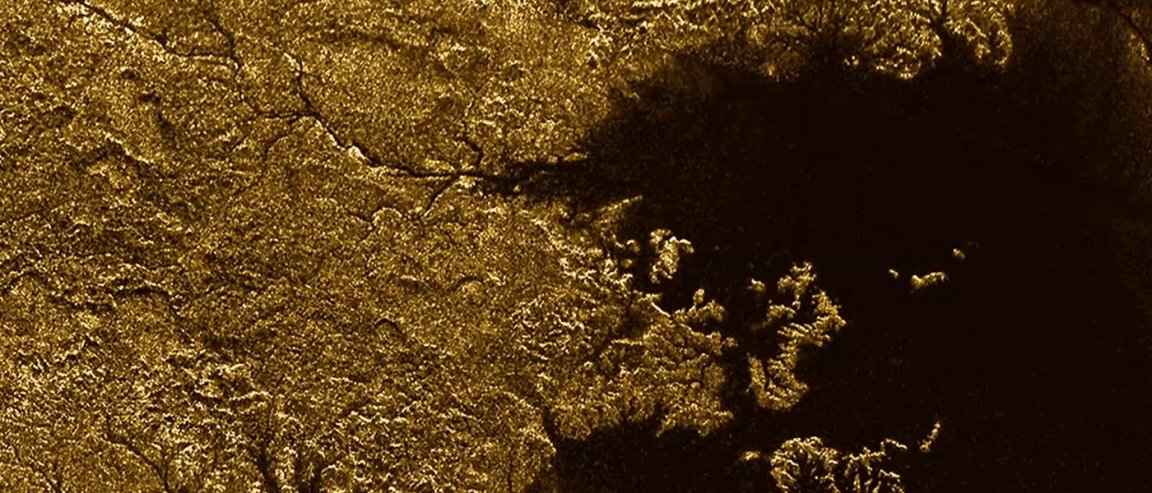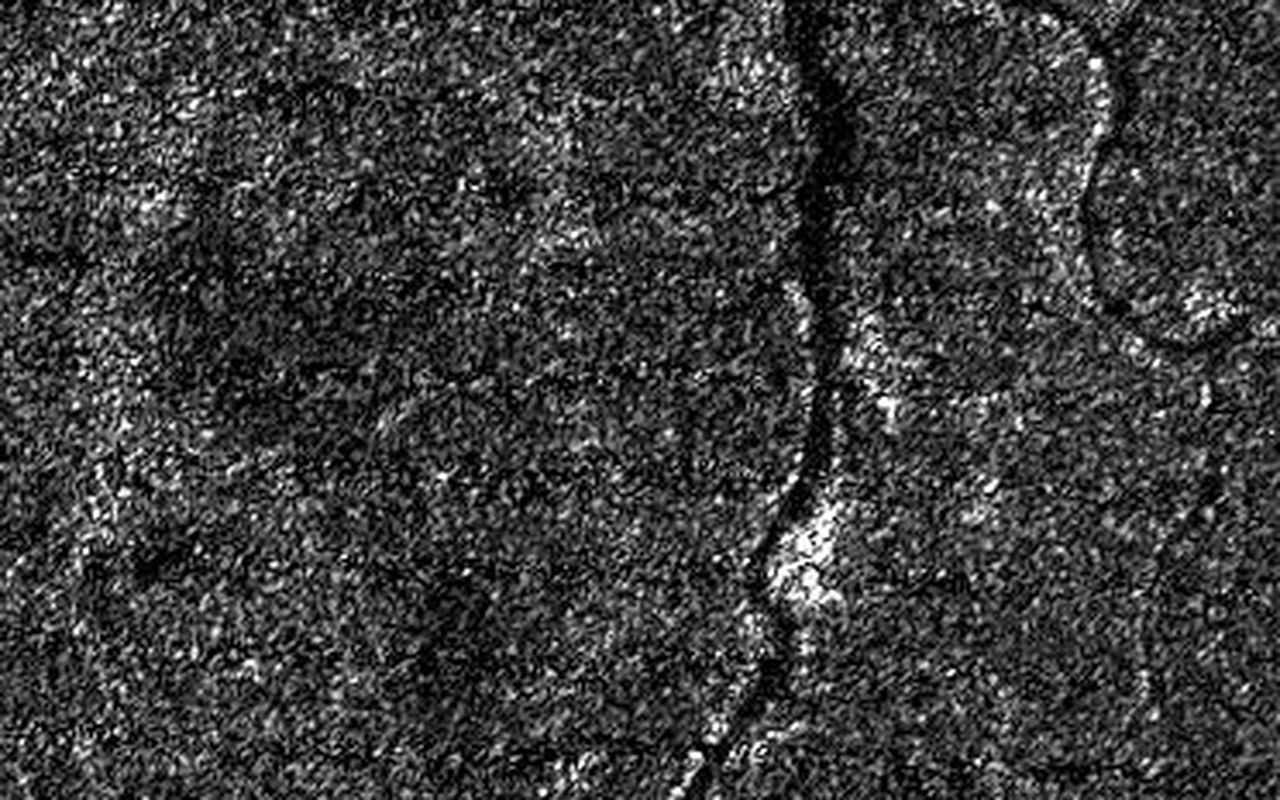
What Channel?
NASA’s Cassini spacecraft has ventured to Saturn’s moon, Titan, and discovered canyons with steep sides filled with liquid hydrocarbons. This discovery is the first evidence of the existence of liquid-filled channels as well as deep canyons reaching up to hundreds of meters below the surface of the moon.
A paper published in the journal Geophysical Research Letters shows the analysis of the data gathered in May 2013 when the spacecraft passed close to Titan. The flyby made in 2013 focused on getting images of the channels that originated in the northern sea, Ligeia Mare.
The observations from Cassini’s radar instrument reveals that the network of channels called Vid Flumina are narrow canyons that are roughly a kilometer (less than half a mile) wide with slopes at least 40 degrees steep and around 240 to 570 meters (790 to 1870 feet) deep.

Network of Hydrocarbons
The images from Cassini show the channels as dark areas, similar to Titan’s methane-filled seas. This made the scientists believe that the channels are also filled with liquid hydrocarbons. They have no way to prove this until recently.
In previous missions Cassini was used as an imager. This time around, it was used as an altimeter to measure the height of the features of Titan. The radar detected a glint in the channels, indicating a really smooth surface just like in the Titan seas. Radar echoes were also used to measure the channels’ depth.
In the future, scientists will focus on the other channels in the Saturnian moon, exhausting other methods for a more comprehensive understanding of how the Titan’s landscape came to be.